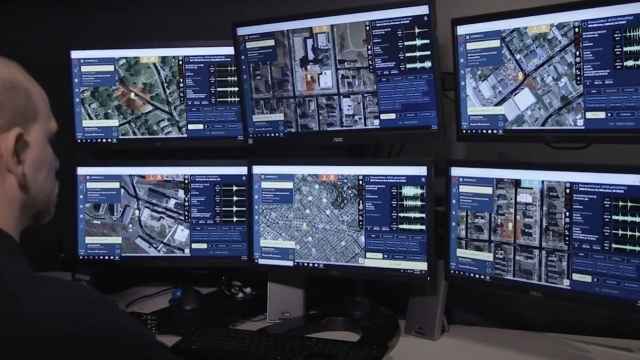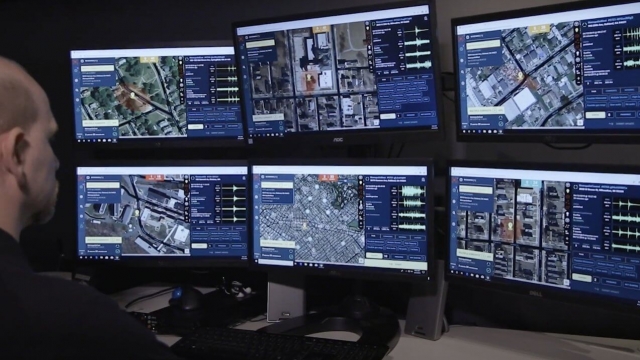Law enforcement agencies around the country have been dedicating funds to new tools for fighting crime. Much of that new funding has come from pandemic-related or federal aid; as then-President Elect Biden first noted in 2021, "Mayors will also be able to buy crime-fighting technologies, like gunshot detection systems, to better see and stop gun violence in their communities." One of the more prominent "gunshot detection systems" is a program commonly known as Shotspotter, operated by law enforcement technology company Sound Thinking.
It works by installing nondescript acoustic sensors around neighborhoods, and its algorithm classifies the types of sounds it hears as gunshots or otherwise. The sounds are reviewed by employees at the company, who can choose to alert the police. The program's reach across the country has been growing fast. In the company's annual reports, they listed customers in nearly 90 cities at the end of 2017. By the end of 2022, they had customers in 151 cities.
"So you're going from 3 minutes to maybe 30 seconds, which means that the officers are armed with quick information that is allegedly a lot more reliable in terms of its accuracy," said Keith Taylor, Adjunct Assistant Professor at John Jay College and former NYPD officer and retired commissioner. But the program has also met its fair share of controversy, with cities debating over its effectiveness, cost, and potential for abuse.
For example, one of the program's largest contracts has been its ongoing agreement with the city of Chicago. In 2021, the city's inspector general found that of the Shotspotter alerts that police responded to, less than 10% were actually gun-related incidents. The city was also hit with a lawsuit by two men arrested allegedly based on the programs' alerts, with one spending months in jail before the case was dismissed.
SEE MORE: This technology helped police capture Atlanta shooting suspect
Other cities like Charlotte, Atlanta, and San Diego have faced community pushback over the effectiveness and potential biases of the program, whose algorithm is still kept private. "For the short term, the concerns about the reliability and the validity of the technology remain," said Taylor. "If ShotSpotter is just a more efficient way to monitor and surveil and ultimately overpolice these communities of color, these impoverished communities, that is an additional concern that needs to be addressed."
In response to our request for comment, a spokesperson for Sound Thinking told Scripps News that ShotSpotter allows for "A safer and more equitable response. As opposed to a 911 call that often requires law enforcement to patrol entire neighborhoods for victims and evidence, the precise location of a ShotSpotter alert decreases the risk of unnecessary stops and searches."
The algorithm itself is not available to the public. But independent studies looking at community impact show mixed results. There is some data suggesting it does shrink response times for law enforcement and medical personnel.
But the data available consistently shows the technology does not reduce gun violence rates, homicides, or arrests. While law enforcement seems to respond to more calls for shots fired, many of those calls could be false alarms.
An article from the International Association of Police Chiefs concluded, "Results show that [gun detection programs] simply seem to replace traditional calls for service and do so less efficiently and at a greater monetary cost to departments."
As cities debate how best to use funds to support law enforcement, combat crime, and support communities fairly, ShotSpotter technology will continue to find itself at the center of debates around public safety.
Trending stories at Scrippsnews.com




